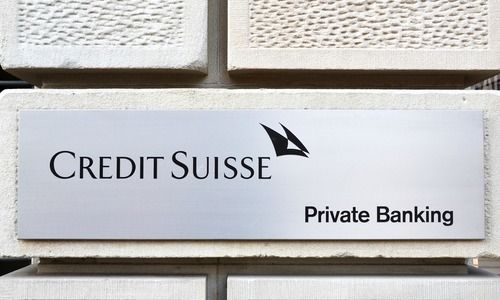Credit Suisse Admits to Cooking U.S. Assets, Pay $90 Million Fine
Credit Suisse will pay $90 million to put to rest an investigation in the U.S. over how it booked fresh client assets, the last vestige of a years-long probe into how it helped wealthy Americans to cheat on their taxes.
The Securities and Exchange Commision said overnight that the Swiss bank admitted wrong-doing in and will pay a $90 million penalty to settle charges of misrepresenting to investors the amount of net new money it had won.
The investigation is an offshoot of a $2.6 billion fine following a guilty plea more than two years ago for conspiring to aid tax evasion among wealthy Americans.
That investigation saw a host of Credit Suisse executives including former Chief Executive Brady Dougan testify before a Senate subcommittee chaired by now-retired Michigan Senator Carl Levin, a corporate scourge who spent years rooting out tax evasion.
Hitting Targets
The net new money allegations first emerged in a 181-page documentation prepared by Levin's staff ahead of the Senate hearings.
A former Credit Suisse executive, Rolf Boegli (pictured below), was also fined by the SEC.

Boegli, who is no longer with Credit Suisse, agreed to pay an $80,000 penalty without admitting or denying the SEC’s findings that he was a cause of Credit Suisse's violations.
«Credit Suisse conveyed to the investing community that it followed a structured process for recognizing net new assets when, in fact, the process was reverse-engineered to meet targets,» said Andrew Ceresney, Director of the SEC’s enforcement arm.
«Credit Suisse’s failure to disclose this results-driven approach deprived investors of the opportunity to fairly judge the firm’s success in attracting new money.»
«Client B»
According to the SEC, Credit Suisse misrepresented assets in 2011 and 2012 in order to meet certain targets set by senior management.
The SEC's report homes in on Credit Suisse's reporting for four clients: Clients A, B, C, and D. The undisclosed «Client B» was later identified as medtech billionaire and conservationist Hans-Joerg Wyss.
Credit Suisse took a «results-driven» approach to booking net new money and shifted some assets from custody to assets under management.
The bank said it wished to underscore that the SEC didn't make any allegations of intentional misconduct, or that net new money was inaccurately report.
«Credit Suisse clients were not harmed,» the bank said in a statement.



























